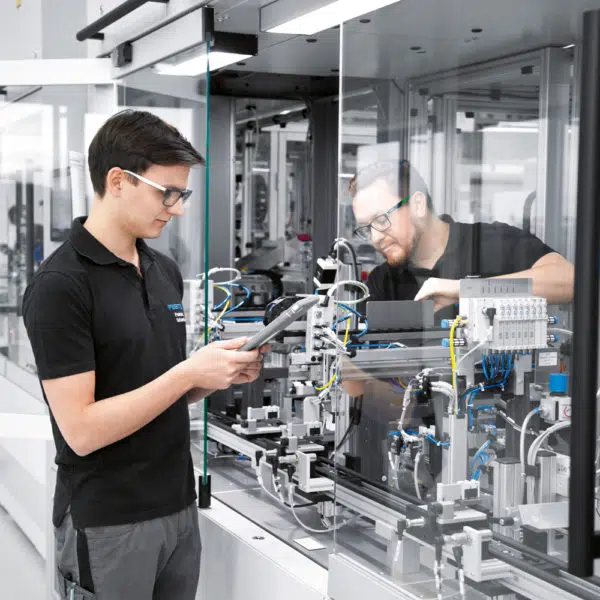Employers have been emphasizing the need for ongoing, relevant skill development in addition to traditional degrees for their employees. The focus on skills is especially true for the manufacturing industry, which has been transforming rapidly for the past decade. We spoke with David Kempsie, Principal and Founder of AET Labs, about the impacts of Industry 4.0 on employers and how New England educators are preparing their students for this evolving workforce.
How is Industry 4.0 changing the skills companies need their employees to have?
The Fourth Industrial Revolution has sparked a frenzy of new technologies, including hardware, software, cloud-based services, cyber-security products, and more. Although the features and benefits may be obvious, it's not always apparent how our engineers and technicians can best apply, integrate or support them. To exacerbate things, the current skills gap in fundamentals such as fluid power, PLCs, control systems, robotics, etc., has been lagging far behind where it should be.
Efforts here in New England to effectively support our local manufacturers have been moving at a snail's pace. So much that employers have lowered the bar for finding skilled employees. For human resource departments, finding employees with soft skills, such as being dependable and having the ability to learn on the job, is all they can ask for in our limited pool of talent.
What is an example of how technology is transforming industrial companies in New England?
If there's anything that the COVID-19 pandemic has taught us, it's that robots don't get sick and that automation is an absolute necessity when it comes to the enormous biotech industry in our region. Not only did automation play a massive role in identifying and finding a cure for the disease, but the sheer scale and time-frame that we were able to vaccinate our population could not have been achieved without Industry 4.0-ready processes. The coordination of manufacturers who supported this effort (think about the vaccine, syringes, packaging, logistics) is mind-blowing. Furthermore, pandemic-causing diseases like COVID-19 are likely to happen more frequently as our society becomes even more globalized. For example, the ability to quickly process and test blood samples on a local level with the highest degree of accuracy is something that companies like Selux Diagnostics in Boston are already doing.
What can educators do to help prepare their students for jobs in the transforming advanced manufacturing industry?
I think there are three essential steps that educators need to take to address this skills gap. The first step is to start with the basics. Fundamental technologies can be taught on a small budget and applied to a wide variety of industries, regardless of whether Industry 4.0 is a factor or not.
The second step is to work with a reputable company that understands manufacturing and has experience in providing solutions to education. There aren't many of these companies out there. Festo Automation not only manufactures components for industrial automation but they also apply Industry 4.0 and the highest levels of automation when producing their own components. Festo product specialists then consult with other manufacturers to provide the best solutions for their processes. In turn, this industrial experience has taught the Festo Didactic division to develop the most industry-relevant solutions for educators, including a solid curriculum that covers all aspects of automation and Industry 4.0.
The third step is to reach out to the local manufacturers, ask them to join an advisory board, and learn how you can help each other.
How are schools in New England using Festo Didactic products to teach mechatronics?
Festo has addressed the skills gap in automation and robotics by developing a comprehensive, three-level certification program covering the fundamentals through to advanced engineer-level topics. The Festo Industry 4.0 Certification Program (FI4.OCP) was designed in conjunction with industry consultants and educators and includes a third-party certification and train-the-trainer program by the National Coalition of Certification Centers (NC3.net).
The great thing about this program is that it addresses a wide range of skills and technologies, enabling our local area high schools to begin at level one, community colleges both one and two, and universities the level three topics. We are in the early stages, but the goal is to have pathways endorsed by local manufacturers and articulation agreements with schools of all three levels to create a cohesive and sustainable community that fulfills the needs of local industry.

